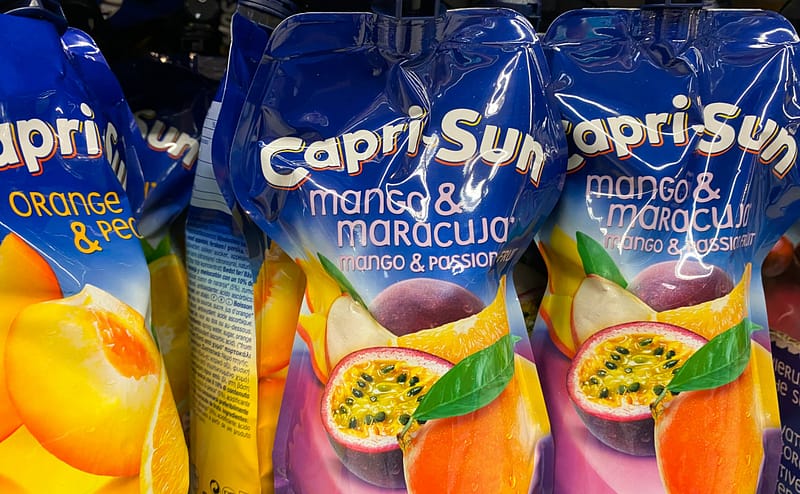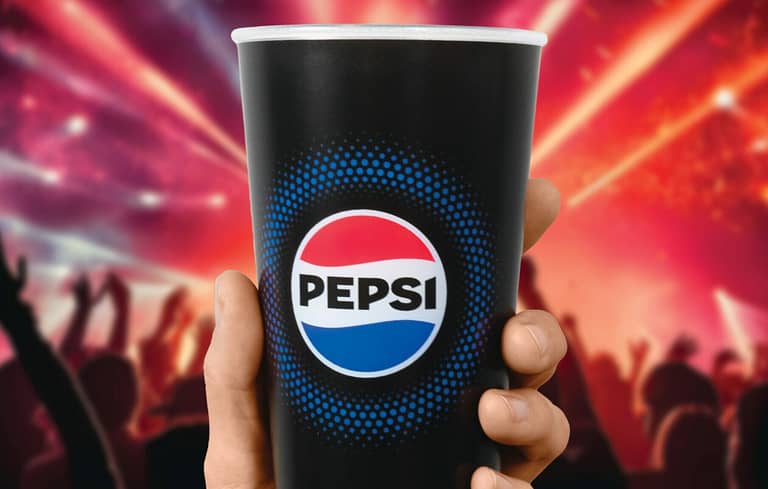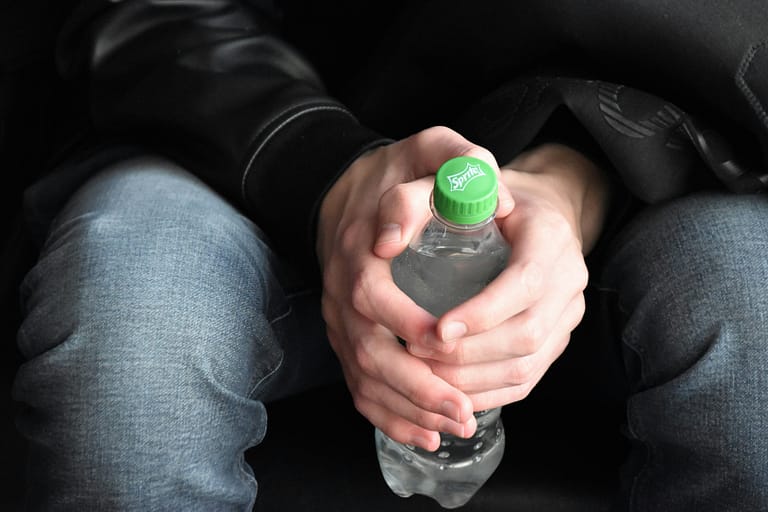Capri Sun Unveils progressive Recyclable Pouches as a Step Towards Emission- and Waste-Reduction
Thomas Reiner | 10.04.2024
Capri Sun Group has launched a 100% recyclable drinks pouch, aiming to set new benchmarks in the beverage packaging industry. Made from mono-material polypropylene, the packaging solution shows a significantly reduced carbon footprint, aligning with the company’s sustainability plan. This marks an important step towards Capri Sun’s goal of transitioning its entire drinks range to fully recyclable packaging by 2025, underscoring its commitment to environmental stewardship. The focus on recyclability by going mono material is logical, yet the implication for the actual recycling usage of the material also must be addressed.
Unlike the Capri Suns traditional laminated layers of aluminum, PE, and PET, which were not recyclable, the new pouches are made entirely of mono-material polypropylene (PP). This design improvement allegedly not only ensures full recyclability but also reduces CO2 emissions by 25% compared to the brand’s previous pouches. Furthermore, the pouches are lighter, weighing only a fifth of a PET bottle, benefitting the CO2 Score as well.
Capri Suns Vision for Greener Packaging
Capri Sun’s dedication to its sustainability goals, which include the commitment to become carbon neutral in its manufacturing operations, were evident before in its plan to transition from plastic to paper straws, utilizing FSC-certified cardboard for multipacks, and introducing 100% rPET across its bottled squash range. According to Capri Sun, the new recyclable pouches are supposed to offer consumers the same convenience they appreciate, but with a significantly lower CO2 footprint than any other comparable beverage packaging. The ultimative objective is to become the most sustainable children’s drink in the world.
The Rollout Strategy
Initially available in 200ml single-serve pouches in Orange and Blackcurrent & Apple flavours, Capri Sun plans to expand the availability of these recyclable pouches across Europe starting in the UK. The strategy aims to significantly reduce aluminium waste in landfills, further enhancing the brand’s environmental impact. Additionally, a 330ml range featuring a re-closable, tethered cap will be introduced, saving 14% on packaging compared to the previous cap. Capri-Suns conversion of the 330-milliliter range across Europe is supposed to happen this year and will take place as part of the introduction of the fastened lid in accordance with the EU Directive 2019/904.
Recyclable Mono Polypropylene
Switching from composites to mono-material in packaging is not easy as composites often include an additional barrier to protect the product. Accordingly, Capri Sun’s move to offer its product in consistent quality despite mono-material packaging is noteworthy and the choice of polypropylene, due to its excellent barrier properties, makes sense. Mono-materials are known to be easier to sort and therefore more energy efficient to use. In contrast to many composite materials, they do not end up in waste incineration, which strengthens a company’s CO2 balance and protects the climate. Polypropylene is also suitable for the use as a post-consumer material in packaging with food contact and therefore offers the best conditions for a closed recycling loop.
When talking about closed loops, there is no getting around efficient return via return systems. These are not all equally established in Europe, so the potential of Capri Sun’s Pouch, as of any other comparable solution, in terms of its carbon footprint strongly depends on the return infrastructure of the respective consumer country.
Recyclability is great, recycling is imperative
The transition to fully recyclable mono material pouches is an exemplary move, showcasing the approach towards sustainability goals by relying on recycling paradigms. Effective recycling streams contribute positively to CO2 emissions balance sheets. The focus on a mono material solution and therefore streamlining the sorting process, which is a major obstacle in effective recycling, is logical. However, the distinction between “recyclable” and “recycled” remains significant, as the actual overall impact depends on the establishment of effective recycling systems and the subsequent use of post consumer recyclates. Therefore Capri Suns solution is commendable, questions about the downstream life of the recyclate, whether it is used in a “closed” packaging-to-packaging loop, downcycled, or otherwise “reused” remain.
Image Source: © Adobe Stock




